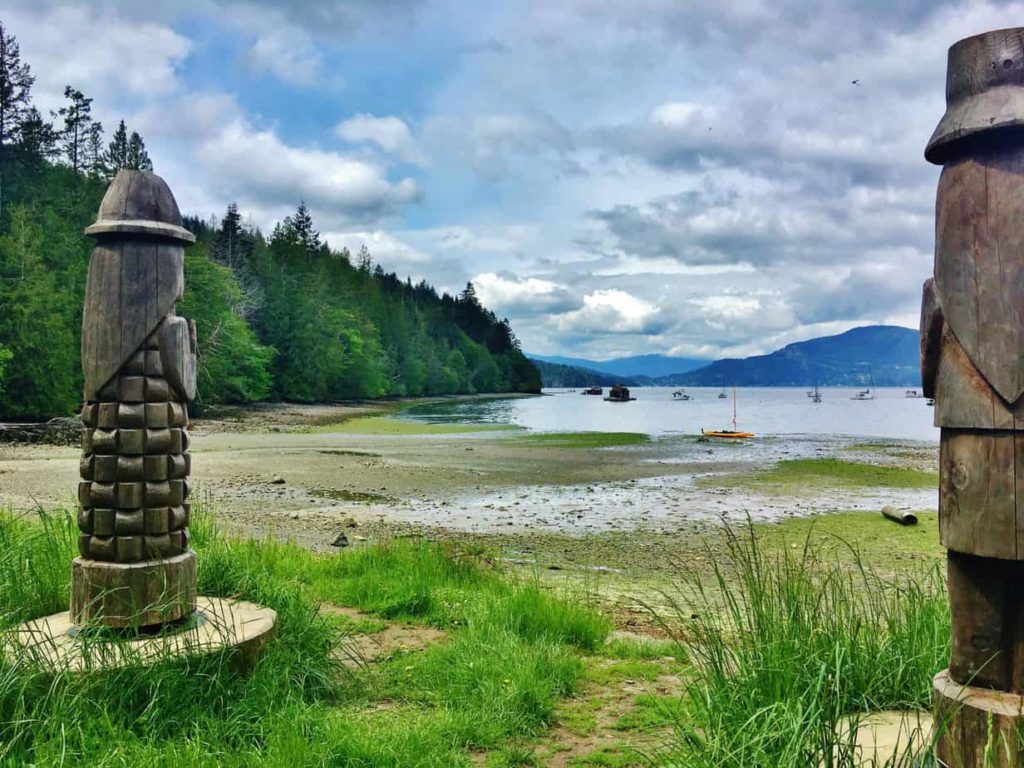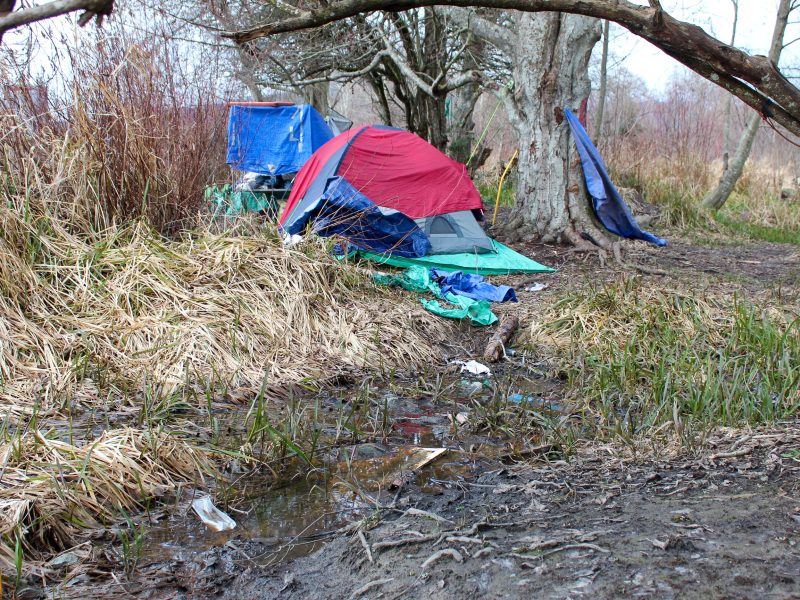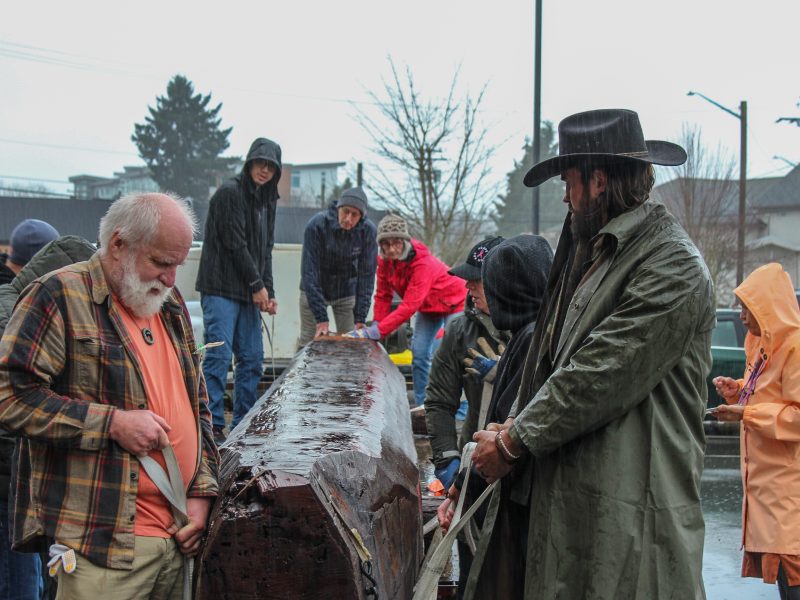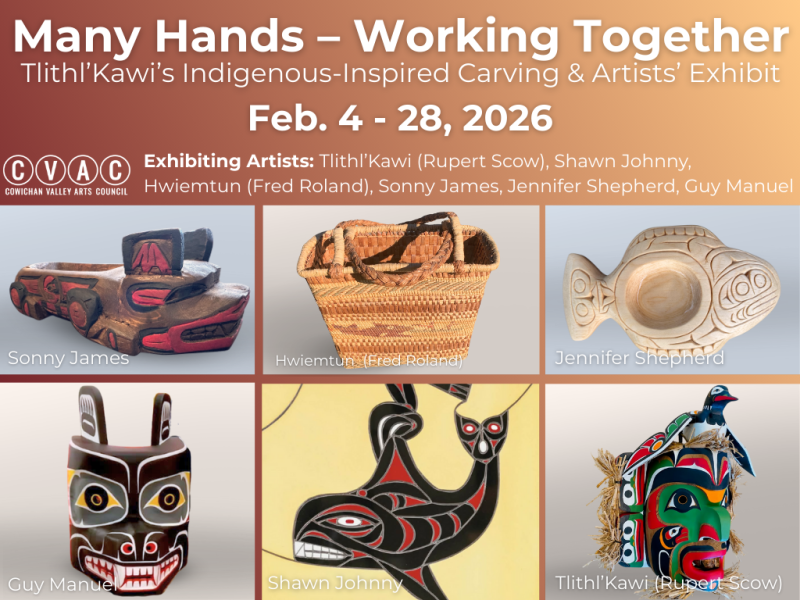
This article is from The Discourse’s Cowichan Valley newsletter. Sign up to get it in your inbox.
Uy netulh,
This week holds two very important dates for Canadian reconciliation. Today marks five years since the release of the 94 calls to action from the Truth and Reconciliation Commission (TRC) of Canada. And tomorrow marks a year since the release of the National Inquiry into Missing and Murdered Indigenous Women and Girls (MMIWG) final report. Both of these documents are great markers for the concept of reconciliation.
These commissions, committees, and reports all work to show our intentions, and for the most part those intentions are good and wholesome. But to truly know the effect of these actions we need to reach out to the people who’ve they’ve affected the most, the hwulmuhw mustimuhw. To get a clearer idea of how these policies are playing out in our community I reached out on Facebook messenger to some of the strong hwulmuhw that I know.
I asked Qwuyumaat Elliott, a member of Cowichan Tribes, about how the TRC affected her as a hwulmuhw person. She tells me that good things have come out of the commission and its calls to action.
She says, “the TRC has opened the door for more opportunities than what has been afforded to my parents and grandparents, both personally and professionally. I have pursued post-secondary opportunities, participated in Hul’qumi’num learning opportunities, volunteered for Indigenous youth wellness advisory committees, and worked on several governance initiatives. As a mother, my son has the opportunity to learn his language and culture in an educational setting allowing him to foster his spirit emotionally, culturally, mentally and spiritually.”
I went on to ask Qwuyumaat how the MMIWG final report has affected her as a hwulmuhw slheni’. She says that there is much more work to be done. “I have to make a consistent effort to prove my worth, as a mother, in my career, in my social interactions, and daily encounters, as … the bar is never set high. It is always assumed I am unreliable, naïve or less-than. The government sends a strong message when the MMIWG calls to justice are not addressed; that our women are not important and our women are not sacred, which is far from the truth.” Qwuyumaat’s words are powerful, and they are echoed by other hwulmuhw slheni’.

After talking to Rosie Johnnie-Mills, who is Haida and Khenipsen (Cowichan), I could see the truth coming to the surface. I asked Rosie how she feels these two government commissions have impacted huwlmuhw mustiimuhw. She tells me that those reports cannot be the answer because they belong to the same system of colonization that continues to oppress Indigenous people:
“For me it’s a further illustration of their tactics. Delay as a form of re-abuse, and we look like unreasonable humans to an ignorant uninvited guest in unceded homeland. Expecting the survivors born into genocide to remain calm while educating the colonizers descendants is blatant re-abuse. I feel the inquiries were never about closure, I feel the inquiries were done without intention to back up the verbal promise.”
Rosie finished by stating, “Our learning, our growth, and our healing, is up to us. How can we keep our finances in our communities longer? How can we hold one another up higher? How can we keep our Indigenous people alive longer? Pointing fingers never makes change.” The passion Rosie put into her words was a sure sign of her sincerity.
I felt that I had to ask an elder to weigh in on the subject. We can never move forward without first taking time to consult with those who know best. I got a hold of my uncle Bingo, Joe Thorne, an elder with Cowichan Tribes, who had a lot of experience and wisdom to share on the topic.
Uncle told me how he felt very plainly: “It’s gone nowhere, why? I’d like to know. Some say the guilt of European history. We need to make drastic, yet simple, changes when we know one of our children is lost or missing. Band to band communications need to happen. Free bus service for long distance travel. A patrol in each community to see who is out at night. So many things. It’s on the table during elections but then gone till next time. Where is our summit, or AFN native brotherhood, in this? No one should be hurt, killed, put in sex traffic, or leave a family looking for closure.”
“It’s echoed loudly, yet no one hears. Changes to child care have to happen. I see this as one of the driving forces that make children angry, feel unwanted, or feel hated, so they run. I voice at the provincial level, but our own leadership ignores the topic. UNDRIP does nothing, treaty does nothing, child services do nothing, feds/prov/nations are doing nothing.”
Joe’s words come from a lifetime of experience as a hwulmuhw man living in Quw’utsun. Uncle finished up by saying. “A real Canada wide investigation team needs to be put in place with all Natives, as hwunitums don’t understand our culture, how we grieve, how we pray, or how we cherish. Whatever I can say or do to help son, I’m here, but I’m angry at this.”
After talking to members of my community I can only conclude that there is still much work to be done. True reconciliation is unreachable. From languages and artifacts to land rights and human lives, too much has been lost that cannot be replaced. Hwulmuhw people cannot be assimilated any further, and instead now must be allowed room to decolonize.
Our people need time to heal from the wounds of colonization and systemic racism. We need space, and that space needs to be respected. Until that happens I don’t predict any governmental commission is gonna right the wrongs that were committed against the Quw’utsun mustimuhw.
Huy tseep q’u siem nu siiye’yu,
Thank you my respected friends,
Jared Qwustenuxun Williams,
grandson of Qwustaanulwut
Hul’qumi’num words
hwulmuhw – First Nations person
hwulmuhw mustimuhw – First Nations people
slheni’ – woman
uy netulh – good morning
hwunitum – non-First Nations person
Quw’utsun – Cowichan
Thanks for all of your feedback that you would like help pronouncing these words. Spelling them phonetically is challenging because there are too many sounds in Hul’qumi’num that don’t exist in English. We hope to share recordings of the words from these newsletters soon. In the meantime, you can hear me pronounce some place names and sounds on my YouTube channel. Or, check out First Voices to learn more words and sounds.



